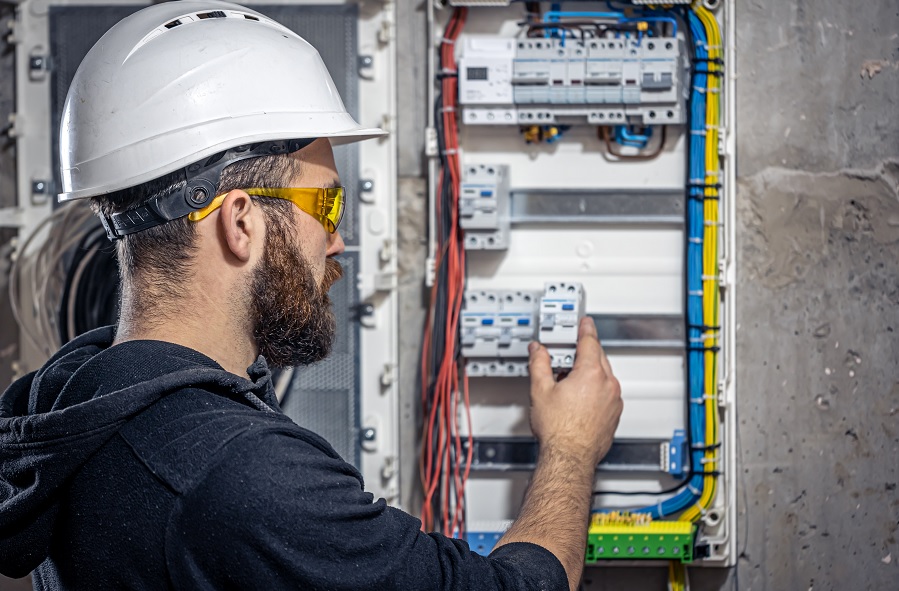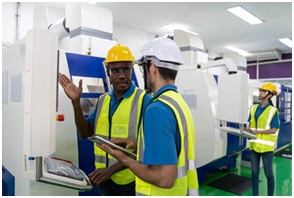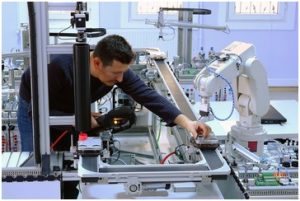
Manufacturers and processing plants need instrumentation and control technicians to perform many duties. They conduct tests and maintain electrical, instrumentation, and mechanical equipment. An instrumentation and Control Technician also interpret readings and outputs of equipment to check proper functioning and correlation with related information systems.
Instrumentation and control technicians help companies maintain their competitiveness in the marketplace. They watch the instruments and controls and immediately record any negative deviations. Technicians report their findings to supervisors, engineers, or plant managers for immediate corrections of the process lines.
Without these technicians, production, and processing lines would not maintain peak performance. Any developing problems would not be detected soon enough and products’ quality could become lower or materials would be wasted. Even worse, the processing lines might shut down.
An Instrumentation and Control Technician Inspects and Troubleshoots Systems

An instrumentation and control technician is the ‘guardian’ of production and processing lines. Their services are performed for businesses such as food production and water processing plants. Since most processing of goods is carried out with high-tech equipment, the work moves extremely fast and requires precision. The way to monitor the workflow and detect any problems is with high-quality instruments and controls.
Technicians regularly monitor systems operated by humans, artificial intelligence, and robots. Everything must go smoothly and the goal is to maintain high-quality production and avoid line shutdowns. Techs’ watchful eyes in the control room and on the production floor inspect and troubleshoot systems with precision and accuracy.
Installing and Repairing Systems
Like our cars need repairs, production and processing lines occasionally need new parts installed or existing parts repaired. Technicians are trained to perform these services:
- Repair or change out electrical components
- Repair or replace instruments
- Repair or change out mechanical equipment
- Coordinate instruments with computer software
- Recommend new instruments or systems
Technicians must be fully aware of how processing and production components interact with each other. The system must be put on hold correctly while new parts are removed and installed or repaired. Techs must also know how to perform these services quickly to minimize downtime.
| “Without these technicians, production, and processing lines would not maintain peak performance.” |
An Instrumentation and Control Technician Calibrates and Maintains Equipment
Instrumentation and control technicians calibrate or adjust instruments and systems as needed to maintain production standards. A simple example is changing a battery-operated clock to daylight savings time. If you do not change it, you have a problem getting to work at the right time. Calibrations are needed for newly installed instruments to coordinate with the entire production or processing system. Older components require calibration due to wear.
Technicians have an overall responsibility to maintain the instruments and control systems.
- They inspect and troubleshoot instruments and systems
- Technicians install and repair components and instruments
- They calibrate and maintain instruments and systems
- Technicians report their findings to supervisors
Technicians develop their skills and knowledge in technical school training and through practical experience at work.
Instrumentation and Control Technicians Possess Skills Vital to Industry

Graduates of instrumentation and control systems programs possess the skills and knowledge necessary for industrial processing operations. They know how to work with these activities:
- Work with electricity and electronic components
- Perform necessary mathematical calculations
- Stabilize pressure and level components
- Install, calibrate, maintain, troubleshoot, and repair instruments
- Read blueprints, wiring diagrams, drawings, and sketches accurately
- Test and perform basic equipment and computer operations
All these activities go into creating production and processing lines and systems that perform as expected. Technicians make it happen and help keep their companies’ bottom line at the top.
Technicians Need Quality Training
The right technical training puts graduates in a good position to acquire solid entry-level jobs. An award-winning technical college program with excellent faculty and staff helps propel students to success in their careers. They work with real-life equipment and hands-on training that simulates working on the job.
Now is the time to enroll in the Associate of Occupational Studies (AOS) Degree Instrument and Control System Technology Program. ITI Technical College prepares students to meet realistic job expectations for their employers. Graduate with the necessary training like thousands of other technical students have at ITI Technical College. Lay the foundation for career success and a better life. Enroll now!
For more information about graduation rates, the median debt of students who completed the program, and other important information, please visit our website at: https://iticollege.edu/disclosures/




